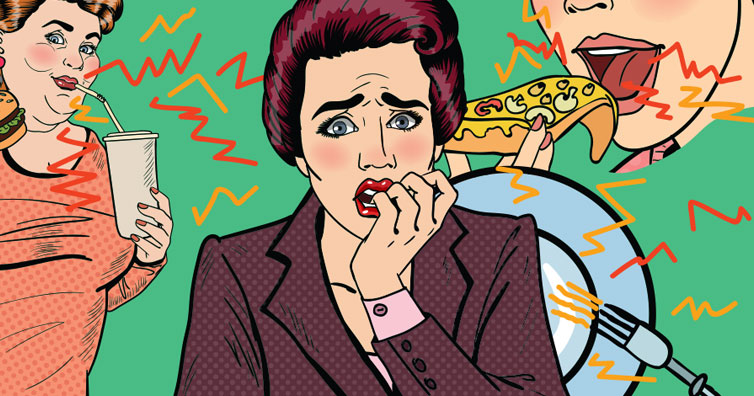When someone is eating their food and they’re constantly making a sound while they chew, does it anger you? Do you get the sudden urge to scream out “can you chew quietly”? If you do, chances are that other annoying sounds along with the sound of chewing may get your blood boiling as well.
Those who suffer from this condition may be diagnosed with Misophonia. According to WebMD, Misophonia is when someone has a strong dislike for a certain noise. In other words, Misophonia is known as selective sound sensitivity syndrome and it starts with a trigger, WebMD adds. More often than not, this sound is oral. So it’s no surprise that many people hate the sound of people chewing.
But this condition may be a blessing in disguise. According to researchers from Northwestern University, those who are hypersensitive to certain sounds tend to be more creative than those who are not. Lead author of the study, Darya Zabelina, explains that the hypersensitivity to certain sounds could lead to increased creativity because the brain is processing more information than the average human does, which in turn widens their scope of attention.
In order to support her theory, Zabelina and her colleagues conducted two thinking tests. The first test contained a series of beeps which would register the participants’ brain activity. Aside from these findings, there are some past experiences that can add to these findings. If you are not familiar with the famous author Marcel Proust, he was a French novelist and he actually lined his walls with corks so it would block out any sound.
According to WebMD, if you are suffering from mild Misophonia, you will feel uncomfortable, anxious, disgusted and the urge to leave the area. But if your response is more severe, you will experience hatred, rage, anger, fear and emotional distress. This condition may not sound severe, but it has the ability to put a serious damper on your social life. If you hate the sound of people chewing, you may stay away from restaurants and even avoid eating with your spouse or your family.
 RobertNeumann/shutterstock.com
RobertNeumann/shutterstock.comWebMD adds that this lifelong condition tends to start between the ages of 9 to 13 and is actually more common with girls than boys. Doctors commonly mistake Misophonia with bipolar or obsessive-compulsive disorder. It’s unknown what causes Misophonia, but doctors have noticed that there has been a higher occurrence with those who are suffering from bipolar, obsessive-compulsive disorder and anxiety disorders, according to WebMD.
There are a few ways that you can cope with Misophonia. The first way is tinnitus retraining therapy. Healthline states that tinnitus retraining therapy is when people are taught to better tolerate noise. If you can imagine, this therapy could be grueling because you’ll constantly be exposed to the noises you hate. The second therapy is cognitive behavioral therapy. According to Dr. Marsha Johnson, an audiologist with the Oregon Audiology Clinic who has studied Misophonia for more than 20 years, ear-level devices that stream audio of nature and other sounds have proven to be effective with 85% of people experiencing relief of their symptoms.
If you enjoyed this story,
Disclaimer: Bestie does not provide medical advice,




